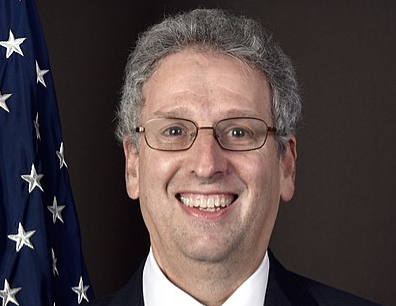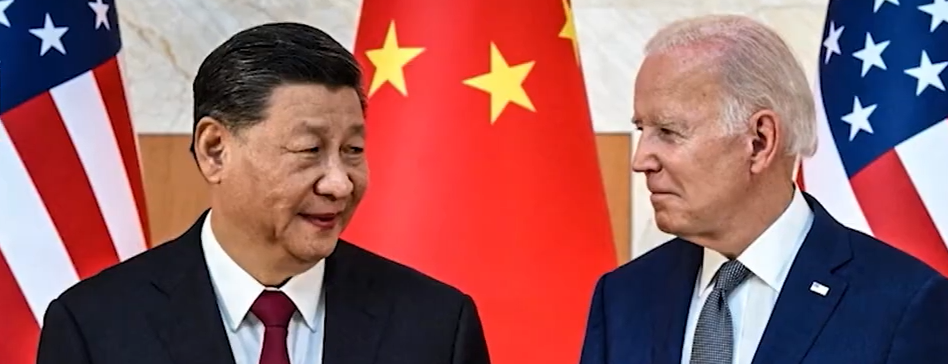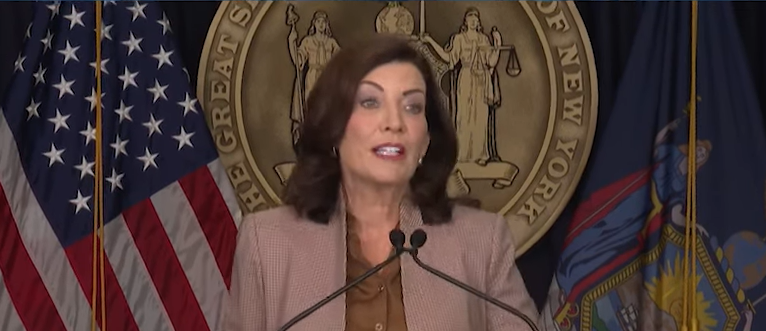Photo: Wikimedia Commons
One of Joe Biden’s very first appointments on January 21st, one of his least publicized but definitely one of his most important when it comes to the future of the earth’s ecosystems and human societies, was the appointment of Richard Glick to be chair of FERC, the Federal Energy Regulatory Commission.
Why was that appointment so important?
It is essential that we as a species urgently transition away from polluting fossil fuels and nukes to clean, jobs-creating, renewable energy sources–wind, sun, tides and currents and the relative heat, in winter, and the relative coolness, in summer, of the earth. Those non-polluting energy sources can then not just generate electricity for the world’s homes and businesses but to power electric cars, trucks, buses, and electric heat pump powered heating and cooling systems.
Electrification of power sources, transportation vehicles and heating and cooling systems is absolutely essential to make a clean energy revolution in enough time to prevent escalating and massive, worldwide climate catastrophe.
Richard Glick was nominated to be a FERC commissioner in 2017. Before his nomination he had a decades-long history of work in government and business in support of renewable energy. I learned this from him in person when we met about a week after I had been arrested during a Senate Energy and Natural Resources Committee hearing on FERC in the summer of that year.
Glick, who is no relation, was at that time the general counsel for the Democrats on that committee. He was in the room up at the front with all the Senators when I stood up as part of an organized nonviolent action and loudly said something like, “FERC is a rubber-stamp agency for the fossil fuel industry and a threat to the future of life on earth.” I was quickly removed by Capitol Police and ending up spending two days and one night in DC Central Cellblock before being released.
A couple of days later us two Glicks received an email from a staffer for one of the Democratic Senators on the Senate ENR committee. She suggested that the two of us might benefit from meeting and talking; I agreed to do so and a week later Rich and I met in the same room where I had been arrested.
By the end of 2017 he had been nominated and approved as a FERC commissioner, and since then I have watched with some amazement as Glick did something no other FERC commissioner has ever done: speak truth to power over and over again from within the corridors of power, particularly about the urgency of the climate crisis.
The Republican majority over those years continued what had been happening under both Democrats and Republicans for at least 20 years, rubber-stamping every methane gas industry permit application to expand that industry. They were also making decisions to disadvantage renewables. In those 20 years, according to a House Committee on Oversight and Reform report last summer, of the 1,021 gas industry permit applications to FERC over that time only six had been rejected.
Glick dissented from just about all of those renewable energy disadvantaging and gas industry expansion permits when they came before the commissioners for a vote. He always wrote clear and well-reasoned dissents, primarily arguing that FERC was not doing serious analyses of the climate impacts of those new pipelines, compressor stations and gas export terminals.
There’s little doubt that his dissents helped to educate people, including federal judges, about the reality of rubber-stamping FERC. By the fall of 2020 he was saying publicly that it was understandable why so many people were describing FERC as a rubber-stamping agency.
Glick’s first commissioners meeting as chair was last week, on February 18th. Once again, he didn’t disappoint. In his opening presentation, he made clear that FERC must become an agency where renewable energy and battery storage would be given space to grow and expand; where FERC’s rubber-stamping ways would be a thing of the past; where environmental justice concerns would become, for the first time, FERC concerns; where, 43 years after being authorized by Congress, there would be a FERC Office of Public Participation; and where the rampant abuse of landowners and property owners via eminent domain for corporate gain would be reined in. And from statements made by the other four commissioners, it was clear that some of those positions were more than just his.
As of June of this year, when Republican commissioner Neil Chatterjee’s term is up, Biden will be able to appoint a third Democrat to team with Glick and commissioner Allison Clements, giving them a majority for the next four years to transform FERC. It really is a whole new FERC world.
There is no question that there will be all kinds of pressures brought to bear to weaken what a Glick-led majority will try to do, including lawsuits brought by deep pockets fossil fuel and pipeline companies. There’s also FERC’s internal culture, corrupted by many years of partnership with the fossil fuelers. And if, in 2024, Republicans take over the White House, whatever positive has transpired up until then will be threatened.
That is why Beyond Extreme Energy and 240 other organizations, as well as Bernie Sanders and Elizabeth Warren, among other elected officials, are supporting the idea of replacing FERC with FREC, a Federal Renewable Energy Commission. FREC would have a Congressional mandate to be all about helping to lead the transition away from fossil fuels to renewables.
Leadership would be required to have a background of support for renewables. Environmental justice and community participation in decision-making would be guiding principles. Eminent domain abuse for corporate gain would come to an end.
BXE has been talking with House and Senate offices about this idea for the last several months, and we’ve been pleased by the response. We anticipate that legislation will be introduced, hopefully this spring, for FERC Into FREC.
In the meantime, we will continue to keep watch on FERC, expecting to like a lot of what we see and hear but prepared to take action as necessary to stand up for communities and the planet, as the movement against fracking and new fracking infrastructure has been doing over the last decade. It is good to know that this time, when we do so, we have reason to expect that our arguments will be taken seriously, finally.
Ted Glick has been a volunteer organizer with Beyond Extreme Energy since its founding in 2014. He is the author of Burglar for Peace: Lessons Learned in the Catholic Left’s Resistance to the War, published last year. Past writings and other information can be found at https://tedglick.com, and he can be followed on Twitter at https://jtglick.com.







